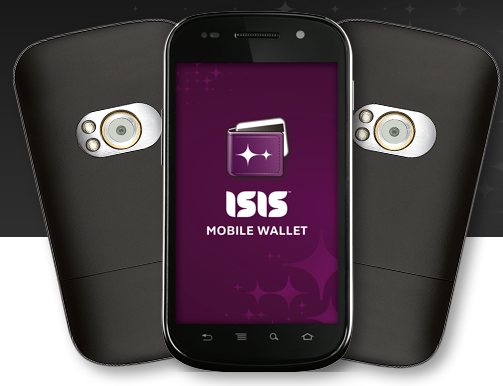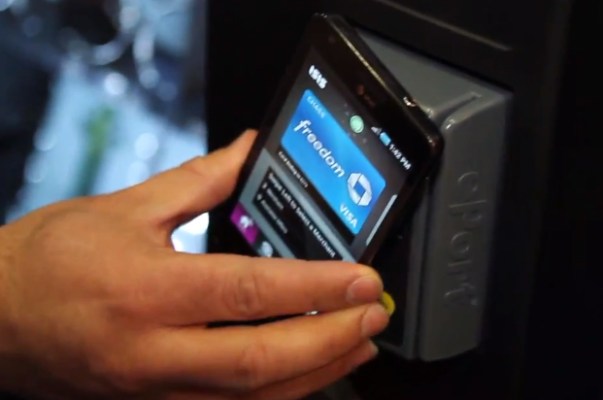The carrier-backed mobile payments service Isis, a joint effort from AT&T, T-Mobile and Verizon Wireless here in the U.S., thinks getting consumers to change their purchasing behaviors is as easy as tempting them with freebies. In Isis’ case, its latest marketing gimmick is free smoothies – in partnership with Isis, restaurant retailer Jamba Juice is announcing today that it will give away a million free smoothies to consumers who pay with their Isis mobile wallet application.
Isis, which has been running trials in Salt Lake City, Utah and Austin, Texas, is preparing to launch nationwide later this year. Originally, the service was going to take a cut of the transactions crossing its network, but now charges service fees to companies using the Isis platform instead. American Express, Chase, and Barclayscard are issuers supporting Isis, which lets consumers load Visa, MasterCard, Amex and Discover cards into a virtual wallet app running on smartphones. But last month, Isis lost one of its early partners, when Capital One pulled out of pilot tests – a hint that all is not well with the platform.
The Isis mobile wallet is an NFC-based technology, which means it’s limited to specific, supported smartphone models – for example, the Samsung Galaxy S4 supports NFC, as do several other Android devices. However, Apple remains an NFC holdout, and unfortunately for the technology, that will dampen its appeal and retailer adoption. Without ubiquitous buy-in from all industry players and OEMs, there will continue to be consumer confusion around NFC, with regard to which phones work, what apps to use, and frankly, why tapping a phone is significantly easier or more secure than using a credit or debit card.
Consumers today who are even vaguely aware of NFC technology – it’s also being adopted by Google Wallet’s mobile app, an Isis competitor – aren’t likely to understand the immediate benefits of changing their old behaviors and patterns without ongoing educational efforts. And while in time, an NFC-based payments service provider like Google could crunch consumer data to better target deals or offer rewards, at first blush, such tracking could feel more “creepy” than productive to privacy conscious consumers.

Plus, the benefit to adopting Isis, a mobile payments service from companies who have historically chosen to nickel and dime consumers instead of investing their profits into innovations and increased bandwidth, is even less clear.
Meanwhile, a variety of other mobile payments plays are underway from companies with fresh ideas, like Square, or with a deeper understanding of the space, like PayPal, or large merchant bases to lean on, like Visa, MasterCard and Amex. And still everyone is waiting for Apple’s other shoe to drop: the iOS “Passbook” app for tickets, loyalty cards, and coupons, feels like the beginnings of mobile wallet destined to expand, and one from a company actually capable of moving the needle.
But Jamba Juice is buying into Isis, right? Well, sure. But Jamba Juice likes to glom on to any payment trial to get its name into the press. In the past, the company has supported Facebook’s efforts with its own branded cards sold through the social network, it has worked with Google Wallet, and it has tested order-ahead pickup with PayPal, as well as added support PayPal Here and at point-of-sale.
But hey, feel free to grab a smoothie on the mobile carriers, right? They owe you that, at least.
